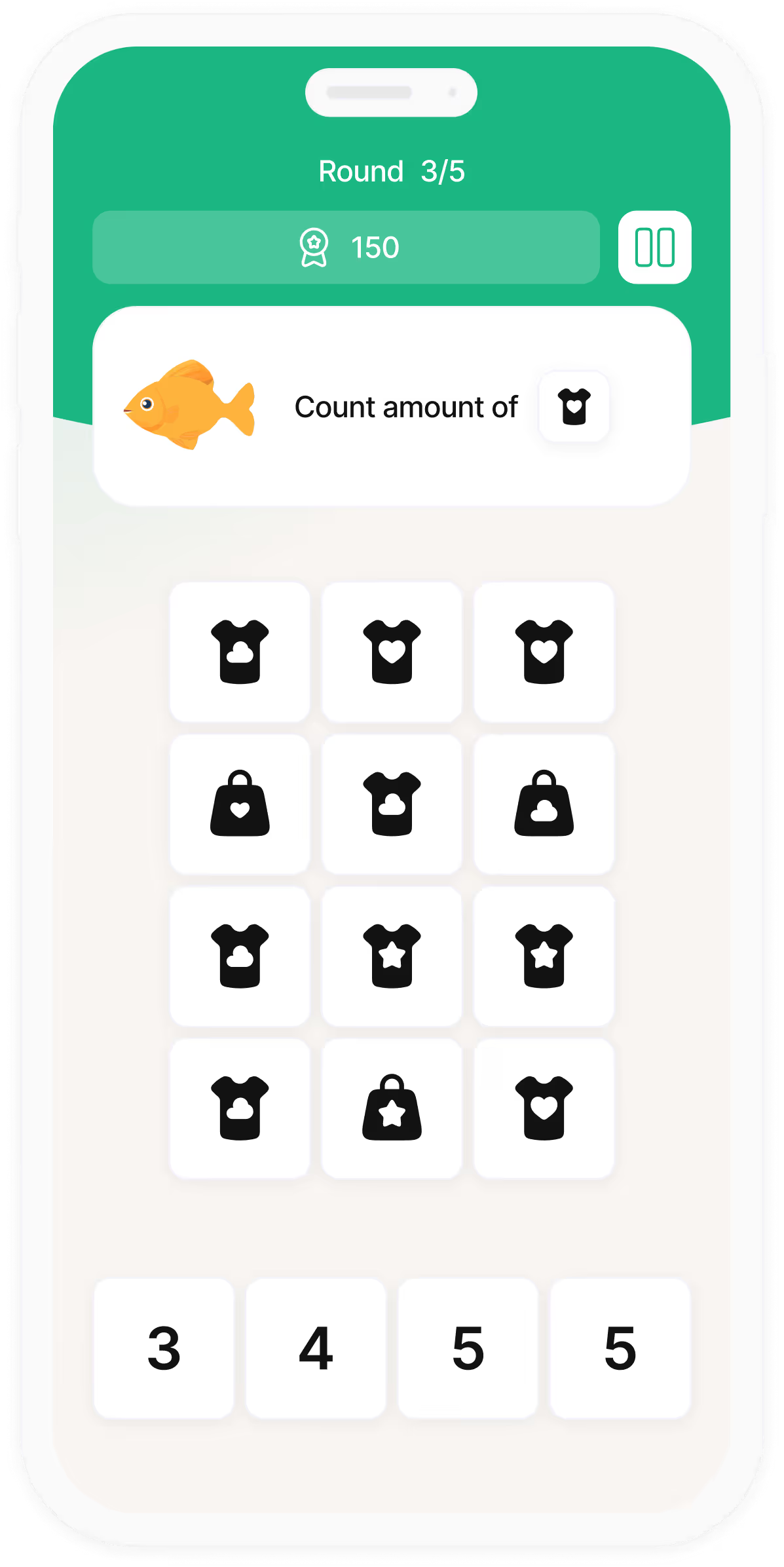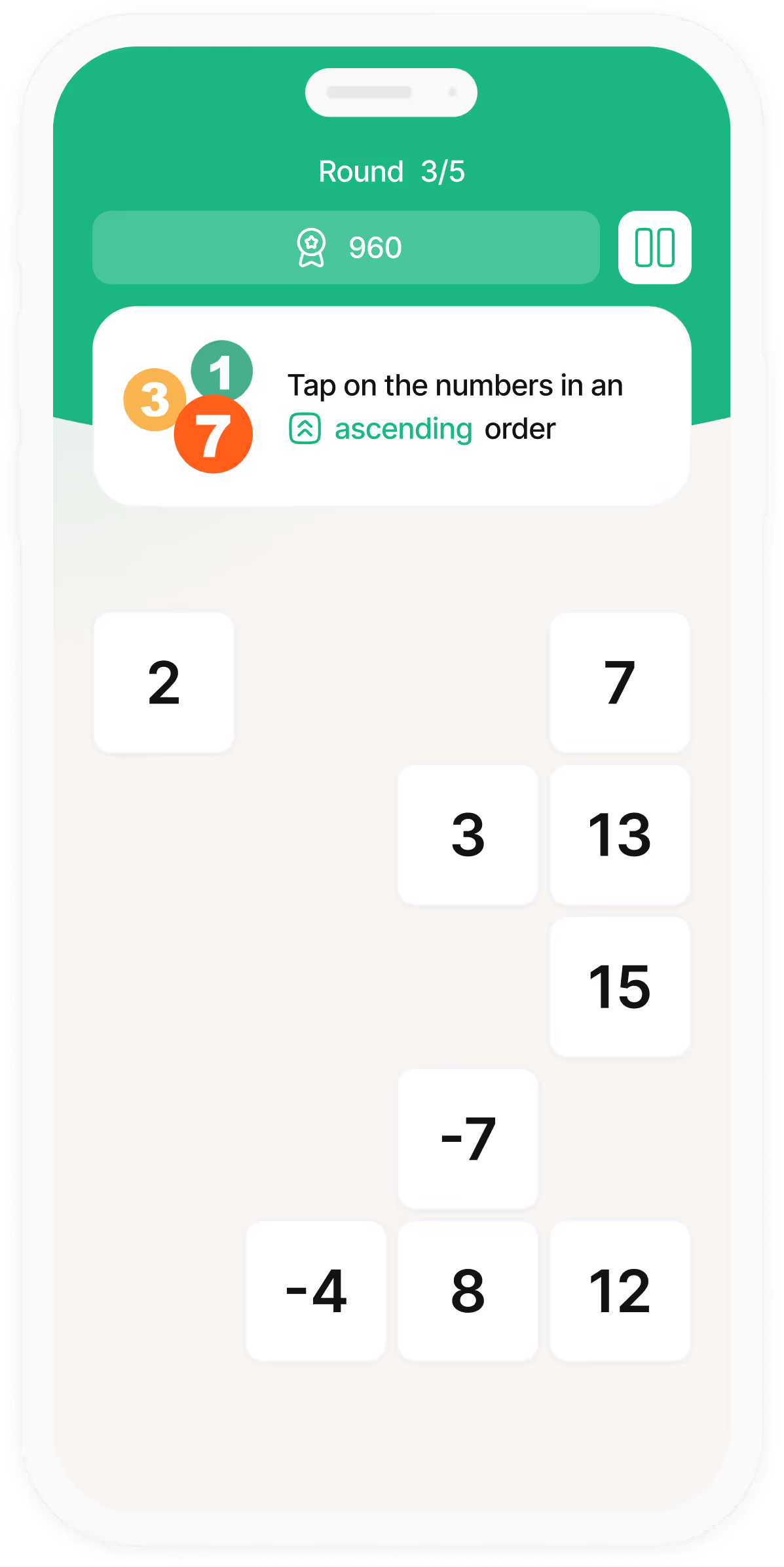Rebuild your confidence with numbers through gentle, low-stress math games that support mental agility and reduce math anxiety, no pressure, no judgment.



ADHD can make mental math feel overwhelming, especially under time pressure. Propel offers calm, supportive challenges that help you think clearly and train quantitative reasoning.
Strengthen number sense without pressure or time stress
Practice mental calculations through engaging games
Rewire negative associations with math using playful repetition
From simple sums to quick logic-based equations, our math games are designed to be fun, approachable, and great for rebuilding fluency and focus with numbers.
Our math challenges are inspired by studies on working memory, numerical cognition, and how ADHD impacts processing speed and mathematical anxiety.
This paper describes General Executive Function Training (GET), which includes tasks such as mental calculation and non-symbolic numerical comparison. These tasks provide direct evidence that training numerical processing skills can be an effective component of cognitive interventions for individuals with ADHD.
This study investigates adults' use of subtraction by addition and its association with executive functions, suggesting that executive functions like updating, inhibition, and shifting are related to strategy efficiency and selection in arithmetic, implying that training these functions could improve mathematical problem-solving.
This paper explores the role of executive function in the development of mathematics proficiency, suggesting that cognitive skills like executive function are foundational to mathematical abilities. This implies that training executive functions could benefit mathematical problem-solving.
This research suggests that engaging in mathematical problem-solving can contribute to cognitive enhancement, particularly in the elderly, and recommends further research to solidify these findings.
Propel makes math feel friendly again. Explore games that help you stay sharp, relaxed, and in control.

